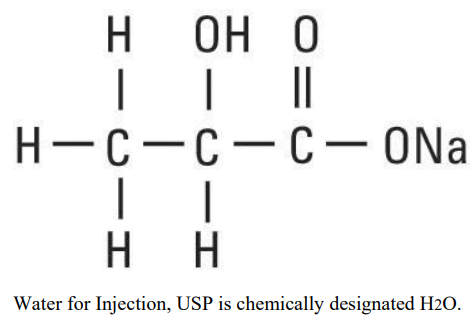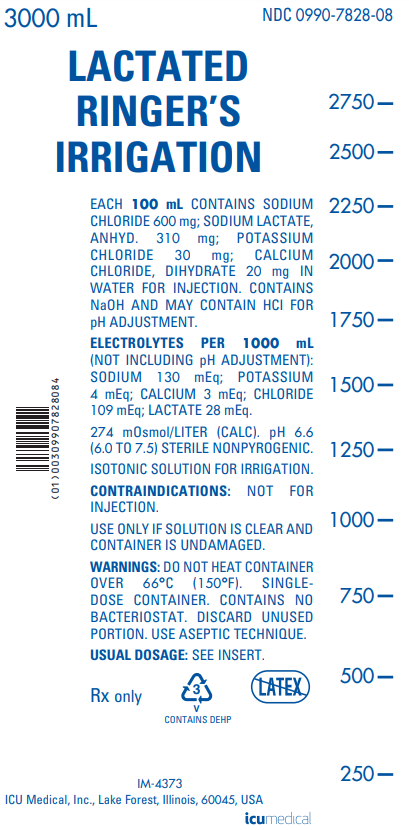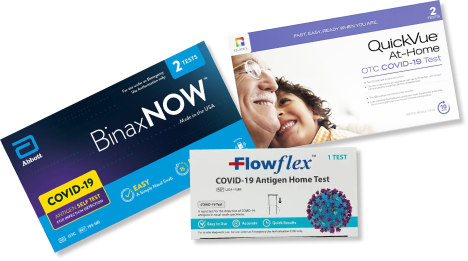-
Catheters (6,800+)
- Angiocatheters (50+)
- Closed System Catheters (300+)
- External Catheters (620+)
- Hydrophilic Catheters (140+)
- IV Catheters (1,200+)
- Non-Hydrophilic (20+)
- Plastic Catheters (200+)
- Rubber Catheters (700+)
- Silicone Catheters (770+)
- Ureteral Catheters (100+)
- Urethral Catheters (450+)
- Venous Catheters (240+)
-
Coronavirus (20,000+)
- Bacterial Filters (170+)
- Bleach (360+)
- Coveralls (500+)
- Disinfectant Wipes (350+)
- Face Shields (200+)
- Gloves (8,000+)
- Gowns (2,300+)
- Isopropyl Alcohol (170+)
- IV Therapy (2,000+)
- Masks (3,700+)
- Pulse Oximeters (250+)
- Sanitizer (670+)
- Scrubs (20,000+)
- Soap (1,500+)
- Stethoscopes (700+)
- Thermometers (950+)
- Custom Kits
- Dental (14,000+)
- Gloves (8,000+)
-
Gynecology & Urology (1,000+)
- Bed Side Drainage Bags (350+)
- Circumcision (150+)
- Cord Clamps and Clippers (60+)
- Disposable Vaginal Specula (60+)
- Enema Bags (30+)
- External Catheters (620+)
- Foley Catheters and Trays (1,200+)
- Identification (1100+)
- Leg Bag Accessories (10+)
- Leg Bags (280+)
- Reusable Vaginal Specula (900+)
- Specimen Collection (200+)
- Tubing & Connectors (17,000+)
- Urinals / Bed Pans (1,300+)
- Urine Collectors (60+)
- Urological Irrigation Products (10+)
- Vaginal Specula Illumination (2+)
- Systems (11,000+)
- Hygiene (1,000+)
- Incontinence (1,000+)
-
Infection Control (2,500+)
- Bacterial Filters (170+)
- Bleach (360+)
- Coveralls (500+)
- Disinfectant Wipes (350+)
- Face Shields (200+)
- Gloves (8,000+)
- Gowns (2,300+)
- Iodine (460+)
- Isopropyl Alcohol (170+)
- IV Therapy (2,000+)
- Masks (3,700+)
- Pulse Oximeters (250+)
- Sanitizer (670+)
- Soap (1,500+)
- Stethoscopes (700+)
- Thermometers (950+)
- Infusion All (2,000+)
- IV Bags - Empty (300+)
- IV Bags - Filled (100+)
- Masks (3,800+)
-
Medical Apparel (23,000+)
- Arm Sleeves (240+)
- Beard Covers (20+)
- Bouffant Caps (200+)
- Compression Socks (80+)
- Coveralls (500+)
- Disposables (100+)
- Isolation Gowns (360+)
- Lab Coats (2,200+)
- Lab Jackets (300+)
- Patient Gowns (300+)
- Procedural Gowns (230+)
- Scrubs (20,000+)
- Shoe Covers (270+)
- Surgeon Caps (40+)
- Surgical Gowns (70+)
- Surgical Hoods (20+)
- Surgical Masks (330+)
- Ostomy (400+)
-
PPE (20,000+)
- Bacterial Filters (170+)
- Bleach (360+)
- Coveralls (500+)
- Disinfectant Wipes (350+)
- Face Shields (200+)
- Gloves (8,000+)
- Gowns (2,300+)
- Isopropyl Alcohol (170+)
- IV Therapy (2,000+)
- Masks (3,700+)
- Pulse Oximeters (250+)
- Sanitizer (670+)
- Scrubs (23,000+)
- Soap (1,500+)
- Stethoscopes (700+)
- Thermometers (950+)
- Respiratory (500+)
- Sanitizer (600+)
- Surgical Supplies (14,000+)
- Sutures (7,500+)
- Syringes & Needles (14,000+)
-
Wound Care (5,000+)
- ABD Pads (100+)
- Adhesive Bandages (650+)
- Advanced Wound Care (400+)
- Applicators (6,700+)
- Burn care (240+)
- Dressings (7,500+)
- Elastic Bandages (1,600+)
- Gauze (3,300+)
- Ice / Heat Packs (280+)
- Medical Tape (820+)
- Non-Adhering Dressings (100+)
- Ointment & Solutions (450+)
- Self-Adherent Wraps (200+)
- Sponges (2,400+)
- Staple & Suture Removal (1,500+)
- Tegaderm (450+)
- Transparent Dressing (800+)
- Wound Care Prep (120+)
- Wound Cleansers (100+)
- Sales & Deals (100+)
- 3M (4,200+)
- Alaris Medical (600+)
- Amsino International (550+)
- Avanos Medical (40+)
- B Braun (1,500+)
- Baxter (750+)
- BD (2,800+)
- BSN Medical (2,000+)
- Cables & Sensors (3,200+)
- C.R. Bard (4,200+)
- Cardinal Health (6,800+)
- CareFusion (2,100+)
- ConMed (1,500+)
- Cook Medical (600+)
- Covidien (9,500+)
- DeRoyal (6,000+)
- Dukal (1,300+)
- Ethicon (4,100+)
- GE Healthcare (1,000+)
- Hartmann (600+)
- Hospira (530+)
- ICU Medical (1,700+)
- Masimo (170+)
- Medline (54,000+)
- Midmark (2,500+)
- Roche (300+)
- Smiths Medical (4,000+)
- Sunset Healthcare (450+)
- TrueCare Biomedix (20+)
- View All Brands (5,000+)

Hospira 07828-08 - LACTATED RINGERS IRRIGATION
LACTATED RINGERS IRRIGATION, 3000ML, EACH
FOR ALL GENERAL IRRIGATION, WASHING AND RINSING PURPOSES
Lactated Ringers Irrigation is a sterile, nonpyrogenic solution of electrolytes in water for injection intended only for sterile irrigation, washing and rinsing purposes. The composition is based on a modification of the injectable formula originally known as Hartmanns Solution.
Each 100 mL of Lactated Ringers Irrigation contains: Sodium chloride 600 mg; sodium lactate, anhydrous 310 mg; potassium chloride 30 mg; calcium chloride, dihydrate 20 mg. The pH is 6.6 (6.0 7.5). The solution is isotonic (274 mOsmol/liter, calc.) and has the following electrolyte content (mEq/liter): Sodium (Na+) 130; potassium (K+) 4; calcium (Ca++) 3; chloride (Cl-) 109 and lactate (CH3CH(OH)COO-) 28. Contains sodium hydroxide and may contain hydrochloric acid for pH adjustment.
The solution contains no bacteriostat, antimicrobial agent or added buffer and is intended only for use as a single-dose or short procedure irrigation. When smaller volumes are required, the unused portion should be discarded. Lactated Ringers Irrigation may be classified as a sterile irrigant, wash, rinse and pharmaceutical vehicle.
- Calcium Chloride, USP is chemically designated calcium chloride, dihydrate (CaCl2 2H2O), white fragments or granules freely soluble in water.
- Potassium Chloride, USP is chemically designated KCl, a white granular powder freely soluble in water.
- Sodium Chloride, USP is chemically designated NaCl, a white crystalline powder freely soluble in water.
- Sodium Lactate, USP is chemically designated C3H5NaO3, a 60% aqueous solution miscible in water. It has the following structural formula:

The flexible plastic container is fabricated from a specially formulated polyvinylchloride. Water can permeate from inside the container into the overwrap but not in amounts sufficient to affect the solution significantly. Solutions inside the plastic container also can leach out certain of its chemical components in very small amounts before the expiration period is attained. However, the safety of the plastic has been confirmed by tests in animals according to USP biological standards for plastic containers
Clinical Pharmacology
Lactated Ringers Irrigation exerts a mechanical cleansing action for sterile irrigation of body cavities, tissues or wounds, indwelling urethral catheters and surgical drainage tubes, and for washing, rinsing or soaking surgical dressings, instruments and laboratory specimens. It also serves as a vehicle for drugs used for irrigation or other pharmaceutical preparations. Lactated Ringers Irrigation provides an isotonic irrigation with the same ionic constituents as Lactated Ringers Injection, USP, a modification of Hartmanns Solution.
Lactated Ringers Irrigation is considered generally compatible with living tissues and organs. Calcium chloride in water dissociates to provide calcium (Ca++) and chloride (Cl-) ions. They are normal constituents of the body fluids and are dependent on various physiologic mechanisms for maintenance of balance between intake and output.
Approximately 80% of body calcium is excreted in the feces as insoluble salts; urinary excretion accounts for the remaining 20%. Potassium chloride in water dissociates to provide potassium (K+) and chloride (Cl-) ions. Potassium is the chief cation of body cells (160 mEq/liter of intracellular water). It is found in low concentration in plasma and extracellular fluids (3.5 to 5.0 mEq/liter in a healthy adult). Potassium plays an important role in electrolyte balance.
Normally about 80 to 90% of the potassium intake is excreted in the urine; the remainder in the stools and to a small extent, in the perspiration. The kidney does not conserve potassium well so that during fasting or in patients on a potassium-free diet, potassium loss from the body continues resulting in potassium depletion.

07828-08 Lactated Ringer's Irrigation Warnings and Precautions
FOR IRRIGATION ONLY. NOT FOR INJECTION.
Irrigating fluids have been demonstrated to enter the systemic circulation in relatively large volumes; thus this irrigation must be regarded as a systemic drug. Absorption of large amounts can cause fluid and/or solute overloading resulting in dilution of serum electrolyte concentrations, overhydration, congested states or pulmonary edema. The risk of dilutional states is inversely proportional to the electrolyte concentrations of administered parenteral solutions. The risk of solute overload causing congested states with peripheral and pulmonary edema is directly proportional to the electrolyte concentrations of such solutions. Do not heat container over 66C (150F).
Do not use for irrigation that may result in absorption into the blood. Caution should be observed when the solution is used for continuous irrigation or allowed to dwell inside body cavities because of possible absorption into the blood stream and the production of circulatory overload. Aseptic technique is essential with the use of sterile solutions for irrigation of body cavities, wounds and urethral catheters or for wetting dressings that come in contact with body tissues. The flexible container is designed for use with nonvented irrigation sets. When used for irrigation via irrigation equipment, the administration set should be attached promptly. Unused portions should be discarded and a fresh container of appropriate size used for the start-up of each cycle or repeat procedure. For repeated irrigations of urethral catheters, a separate container should be used for each patient. Do not administer unless solution is clear and container is undamaged. Discard unused portion.
07828-08 ICU Medical Adverse Reactions
Possible adverse effects arising from the irrigation of body cavities, tissues, or indwelling catheters and tubes are usually avoidable when proper procedures are followed. Displaced catheters or drainage tubes can lead to irrigation or infiltration of unintended structures or cavities. Excessive volume or pressure during irrigation of closed cavities may cause undue distension or disruption of tissues. Accidental contamination from careless technique may transmit infection. Should any adverse reaction occur, discontinue the irrigant, evaluate the patient, institute appropriate therapeutic countermeasures and save the remainder of the fluid for examination if deemed necessary.
Lactated Ringer's Irrigation Dosage And Administration
The dose is dependent upon the capacity or surface area of the structure to be irrigated and the nature of the procedure. When used as a vehicle for other drugs, the manufacturers recommendations should be followed. Tear at notch and along dotted line and remove container. Some opacity of the plastic due to moisture absorption during the sterilization process may be observed. This is normal and does not affect the solution quality or safety. The opacity will diminish gradually.
Lactated Ringers Irrigation is supplied in single-dose 3000 mL flexible irrigation containers (NDC No. 0409782808 / 0990-7828-08). ICU Medical is transitioning NDC codes from the 0409 to a 0990 labeler code. Both NDC codes are expected to be in the market for a period of time. Store at 20 to 25C (68 to 77F). [See USP Controlled Room Temperature.] Protect from freezing.
Manufacturer: 07828-08 ICU Medical
Volume: 3,000 mL
MADE IN USA


